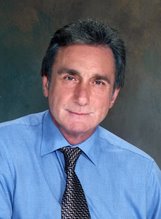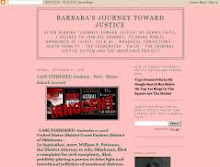
Dennis Fritz speaks to TCC, high school students -
Area high school students and TCC Biotechnology students didn’t blink while a man who spent 11 years in prison described what it was like to be behind bars, and innocent. Their eyes were cemented to the speaker, not even looking away when someone opened a door allowing sunlight to spill into the black theatre.
As Dennis Fritz spoke, empathy enveloped him. Teenagers, sometimes revered as the toughest audience to engage, didn’t breathe as he told a
story that seemed to come straight from Hollywood.
Area high school students and TCC Biotechnology students didn’t blink while a man who spent 11 years in prison described what it was like to be behind bars, and innocent. Their eyes were cemented to the speaker, not even looking away when someone opened a door allowing sunlight to spill into the black theatre.
As Dennis Fritz spoke, empathy enveloped him. Teenagers, sometimes revered as the toughest audience to engage, didn’t breathe as he told a
story that seemed to come straight from Hollywood.
A single father of a 3-year-old girl, wrongfully arrested,sentenced to life in prison, and now using his experience to save others.
Fritz visited TCC in March to speak at the Biotechnology Learning Extravaganza held in the VanTrease Performing Arts Center for Education (PACE). The second annual event, made possible by a SEEDBEd grant from the National Science Foundation, gave students a first-hand look at why biotechnology is important.
Dr. Diana Spencer, coordinator of the biotechnology program, invited both Fritz and Forensic Supervisor Cassie Johnson to speak at this year’s event.“We wanted to expose students to the real-life events connected to biotechnology,” she said. Fritz was convicted of first-degree murder in 1988, along with co defendant Ron Williamson (Williamson died in 2004). Fritz received a life sentence while Williamson received the death penalty. At one point, Williamson was literally days away from being put to death. The two spent 11 years in prison until they were exonerated on April 15, 1999 at the Pontotoc County Courthouse. Fritz and Williamson were convicted based on unreliable evidence and false confessions. They got their freedom back thanks to The Innocence Project: a non-profit legal clinic affiliated with the Benjamin N. Cardozo School of Law at Yeshiva University and created by Barry C. Scheck and Peter J. Neufeld in 1992.
According to www.innocenceproject.org, the project is “a national litigation and public policy organization dedicated to exonerating wrongfully convicted people through DNA testing and reforming the criminal justice system to prevent future injustice.”
Dr. Diana Spencer, coordinator of the biotechnology program, invited both Fritz and Forensic Supervisor Cassie Johnson to speak at this year’s event.“We wanted to expose students to the real-life events connected to biotechnology,” she said. Fritz was convicted of first-degree murder in 1988, along with co defendant Ron Williamson (Williamson died in 2004). Fritz received a life sentence while Williamson received the death penalty. At one point, Williamson was literally days away from being put to death. The two spent 11 years in prison until they were exonerated on April 15, 1999 at the Pontotoc County Courthouse. Fritz and Williamson were convicted based on unreliable evidence and false confessions. They got their freedom back thanks to The Innocence Project: a non-profit legal clinic affiliated with the Benjamin N. Cardozo School of Law at Yeshiva University and created by Barry C. Scheck and Peter J. Neufeld in 1992.
According to www.innocenceproject.org, the project is “a national litigation and public policy organization dedicated to exonerating wrongfully convicted people through DNA testing and reforming the criminal justice system to prevent future injustice.”
“Today, we can amplify DNA through a process called PCR,” Spencer said. “DNA forensic scientists have the ability to revisit old cases that
were prosecuted before DNA biotechnology, and use the miniscule amounts of DNA to free the incorrectly incarcerated.”
were prosecuted before DNA biotechnology, and use the miniscule amounts of DNA to free the incorrectly incarcerated.”
Since its inception, The Innocence Project has exonerated more than 200
people. Before Fritz spoke, Johnson, who does pro bono work for The Innocence Project, told students about her life as a Forensics Supervisor and Technical Leader of Y-STR and mtDNA Analysis at Orchid Cellmark in Dallas. She gave an overview of tests they perform in the lab as well as a snapshot of what her typical day includes. She said forensic science is a lot different than what is portrayed on popular crime investigation television programs. While entire crimes are solved in 20 to 40 minutes on television, actual DNA testing can take from a few days to a few weeks.
To finish the day, the 100 high school participants performed DNA
testing on strawberries at the Health Sciences and Biotechnology Learning Center, also on the Southeast Campus. Johnson and Fritz accompanied the students, watching as possible future biotechnologists got their first taste of DNA analysis.
people. Before Fritz spoke, Johnson, who does pro bono work for The Innocence Project, told students about her life as a Forensics Supervisor and Technical Leader of Y-STR and mtDNA Analysis at Orchid Cellmark in Dallas. She gave an overview of tests they perform in the lab as well as a snapshot of what her typical day includes. She said forensic science is a lot different than what is portrayed on popular crime investigation television programs. While entire crimes are solved in 20 to 40 minutes on television, actual DNA testing can take from a few days to a few weeks.
To finish the day, the 100 high school participants performed DNA
testing on strawberries at the Health Sciences and Biotechnology Learning Center, also on the Southeast Campus. Johnson and Fritz accompanied the students, watching as possible future biotechnologists got their first taste of DNA analysis.
The annual Biotechnology Extravaganza is made possible by the SEEDBEd grant awarded to TCC by the National Science Foundation in 2006. The grant focuses on introducing biotechnology to middle and high school students. The grant provides funding for TCC faculty to visit
secondary schools and engage students in conducting DNA la procedures. Funds also provide materials for secondary teachers to use in classrooms
so they can incorporate biotechnology experiences into their everyday
curriculum. Spencer said the grant, along with TCC’s Health Sciences and Biotechnology Learning Center, enables TCC to train the students needed for this exploding field.
“In Oklahoma, the occupation of biological technician is one of the 30 fastest-growing jobs in the state,” she said. “Biotech has been described by the U.S. Department of Commerce as essential to the national long-term economic growth and leadership.” She said she appreciates Fritz and Johnson speaking at the Biotechnology Extravaganza, hoping their personal and professional experiences will touch students in a way that textbooks cannot. “It takes what they’ve learned in the classroom to a new level,” Spencer said. “These events describe how effective science can change lives."
secondary schools and engage students in conducting DNA la procedures. Funds also provide materials for secondary teachers to use in classrooms
so they can incorporate biotechnology experiences into their everyday
curriculum. Spencer said the grant, along with TCC’s Health Sciences and Biotechnology Learning Center, enables TCC to train the students needed for this exploding field.
“In Oklahoma, the occupation of biological technician is one of the 30 fastest-growing jobs in the state,” she said. “Biotech has been described by the U.S. Department of Commerce as essential to the national long-term economic growth and leadership.” She said she appreciates Fritz and Johnson speaking at the Biotechnology Extravaganza, hoping their personal and professional experiences will touch students in a way that textbooks cannot. “It takes what they’ve learned in the classroom to a new level,” Spencer said. “These events describe how effective science can change lives."
Story from TCC Magazine - To see the entire magazine, visit http://www.tulsacc.edu/ and type Spotlight in the search box. In the search results, click Spotlight Magazine. Then, click on the Spring08 edition.
More About Orchid Cellmark -
Orchid Cellmark Inc. is engaged in the provision of deoxyribonucleic acid (DNA) testing services that generate genetic profile information by analyzing an organism’s genetic identity. The Company’s business focuses on DNA testing for human identity, particularly for forensic and family relationship, as well as security applications. The Company provides DNA testing for agricultural applications, including for food safety, selective trait breeding and traceability purposes, all of which are conducted in the United Kingdom. The Company caters to various government agencies, private individuals and commercial companies. Majority of its customers are based in the United States and in the United Kingdom. On October 31, 2007, the Company acquired ReliaGene Technologies, Inc. (ReliaGene), a provider of forensic and paternity DNA testing services based in New Orleans, Louisiana. More from Reuters »
Orchid Cellmark Inc. is engaged in the provision of deoxyribonucleic acid (DNA) testing services that generate genetic profile information by analyzing an organism’s genetic identity. The Company’s business focuses on DNA testing for human identity, particularly for forensic and family relationship, as well as security applications. The Company provides DNA testing for agricultural applications, including for food safety, selective trait breeding and traceability purposes, all of which are conducted in the United Kingdom. The Company caters to various government agencies, private individuals and commercial companies. Majority of its customers are based in the United States and in the United Kingdom. On October 31, 2007, the Company acquired ReliaGene Technologies, Inc. (ReliaGene), a provider of forensic and paternity DNA testing services based in New Orleans, Louisiana. More from Reuters »













